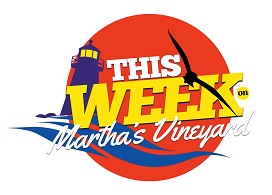How To Train A Dog To Come When Called

When “Come” Turns Into “Chase Me”, Neither You Nor Your Dog Gets The Last Laugh
Have you ever had your dog off-leash at the dog park and called them to “come” (also known as recall), only to be ignored, and then proceeded to call them again, sometimes repeatedly, before they seemed to finally listen? Or even more frustrating, and to your own embarrassment, have you had to chase them down in front of a legion of bemused dog owners in order to grab them and get them back on the leash (maybe even losing your cool in the process)?
If, on top of this, you also reprimanded or punished your dog when they finally responded to your call (or when you finally caught up with them), you not only taught them NOT to come to you the first time you asked, but that you will also either give chase (a game that many dogs enjoy, and which may also prompt them to run away from you) to force them to comply, or worse, that you will punish them for doing what you ask (albeit not the first time you asked, but you’ll soon discover that human error is to blame for that).
Word Association – How To Turn Recall Into A Pleasant Experience For Your Dog
We’ve all had the experience of being asked to do something we don’t want to do, at a moment we don’t want to do it. Your dog is really no different from you in this respect. However, teaching your dog to come when called is important, not only because it makes life easier (and makes you look like the best dog trainer ever at the dog park), but because it can keep your dog out of trouble, possibly even saving their life.
First and foremost, make sure your dog associates recall with positive experiences. Dogs, like human beings, avoid things they don’t like. If you only call your dog to come when it’s time to leave the dog park, or worse, get upset and punish them for taking their time to respond to you, you are setting them up for making a negative association with the word and ignoring your command.
To turn this around, you need a new strategy. Start by reinforcing the act of coming when called by making sure the end result is something your dog will enjoy: praise, a treat, or being allowed to return to whatever they were doing. Yes! Calling your dog to come, and then sending them off again to resume whatever activity they were enjoying before, will help condition them to want to respond to you when called.
Dog Training Tip: Ask a friend to play monkey in the middle with you and your dog. Take turns calling your dog back and forth, making sure you both sound happy and excited as you do so. Lavishly praise your dog every time they come to each of you when called.
Dog Training No-No: Chasing Down Your Dog
Never, ever chase after your dog or punish them for not coming when called – it will only perpetuate the problem! Often, you are interrupting your dog in the middle of something it prefers to do more than come to you (like sniffing something interesting or playing with another dog), so take this into account. If your dog ignores you when you call them, don’t get upset. Take a deep breath, wait for them to respond (even it seems like they are taking forever), and praise or treat them when they finally come to you. If you make a commitment to practicing recall more often in a controlled environment, without distractions (the dog park is not a good setting in which to help your dog learn new behaviors), you will notice that they respond better and more quickly when you take them somewhere public to socialize.
Dog Training Tip: Practice recall in a place with minimal distractions in 2-5 minute intervals, using freedom as a reward. Simply call your dog to come, praise them when they do so, and then send them off to resume whatever activity they were doing before. This will go a long way to show your dog that listening to you doesn’t necessarily mean their off-leash freedom is immediately going to end. And if your dog does not respond to your first request, DON’T REPEAT YOURSELF. Either stand still and wait for your dog to come to you (no matter how long it takes, and praising them when they do so), or try walking in the opposite direction of your dog. Sometimes walking away from your dog will stimulate them to follow you, and when they catch-up, you have the perfect opportunity to praise them and send them off again.
Realistic Expectations – Dogs, Like People, Make Mistakes
No matter how much effort you put into dog training, no canine is ever going to be 100% reliable at coming when called. Dogs are not machines. They’re like people: they have their good days and their bad days. Sometimes they don’t hear you call, sometimes they’re paying attention to something else, sometimes they misunderstand what you want, and sometimes they simply decide that they would rather do something else. And, let’s face it, sometimes our training is inconsistent or confusing. So be patient with your dog, remaining consistent, fair, and discerning in your expectations, and it will pay off.
Los Angeles dog trainer Alexandra Bassett is the owner of Dog Savvy Los Angeles, a dog training company based in Los Angeles. She has volunteered to train shelter dogs for over a decade and specializes in solving problem dog behavior. She lives on Martha’s Vineyard and is available for free consultations. For more information, call 435-640-5073.




